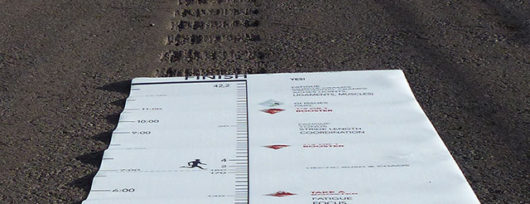If we consider our race nutrition we should not forget about the bigger picture behind. At least I think that we need to look at our nutrition in general, and at the race and training nutrition in specific as an integral part of the nutrition plan. Our performance is depending on quality foodstuff the whole year through. We do sports to stay fit and well. If this is our goal we also should be preventing the longterm effects one-sided eating can lead to, e.g. chronic illnesses, injuries and bad aging. Lifelong well-being is after all a spin-off of a healthy lifestyle.
Eating during the competition is a tricky subject, and has long been underestimated. Today it is mainly consisting of different carbs, sugars and flavors. Beside salt and electrolyte drinks the ingestion of high amounts of carbohydrates turned into an unquestioned standard, even though this concept of the race nutrition is not standing on solid scientific grounds at all. Fat is still looked at with great mistrust, wrongly I have to stress at this point.
But even though the voices that proclaim the high fat low carbs diet are getting louder, they still have problems to make themselves heard. The idea that fat makes fat is so deeply ingrained that we oversee the fact that the biggest issue in our societies is obesity which triggers a whole bunch of illnesses.


Sports nutrition is dominated by the carbohydrates over decades now. But the discourses around this topic become finally more and more controversial. One should know that the low-carbohydrate, high-fat diets are not a current fad, they had been popular for well over a century until the 1960s, and a method of weight loss endorsed by mainstream science. Then the scales tilted in favor of the high carb diets which were founded on doubtful scientific grounds. The discredited fat stands for a very shameful chapter of natural science.
Here Max Planck’s saying applies perfectly: “A new scientific truth does not triumph by convincing its opponents and making them see the light, but rather because its opponents eventually die, and a new generation grows up that is familiar with it.”
The wide-spread stomach and gut issues during competitions force us to ask questions related to our food intake. Without elaborating on it in greater depth it seems obvious that the distress symptoms in great parts are attributable to the high amount of carbs and sugars athletes ingest. Nobody knows until today what the longterm consequences for athletes will be after having excessively consumed carbs over years. What we do know is that diabetes type 2 becomes a serious problem among athletes, and that overweight is an issue too. This shows us that it is high time to change something in our diet. Workouts are essential for well-being, but so are our diets. But to deflect or smother the charge that the promotion of low-fat diets which is a 40-year old fad, with disastrous outcomes, conceived of, authorized, and policed by nutritionists, is hard.
BIESTMILCH and the BIEST BOOSTER in specific help you to spare carbs and protect your stomach and gut from the distress under the circumstances of a competition. You should start to overthink your race nutrition, not only for improving your race results, but also to prevent the longterm side effects of the high carb diet.
>> Here you can find more about why BIESTMILCH is a serious option as part of your food plan.
>> Another very interesting profound read …
Afterword
It is a biological error to confuse what a person puts in their mouth with what it becomes after it is swallowed. The human body, far from being a passive vessel for whatever we choose to fill it with, is a busy chemical plant, transforming and redistributing the energy it receives. Its governing principle is homeostasis, or the maintenance of energy equilibrium.

Far from being an inert dumping ground for excess calories, fat tissue operates as a reserve energy supply for the body. Its calories are called upon when glucose is running low – that is, between meals, or during fasts and famines. Fat takes instruction from insulin, the hormone responsible for regulating blood sugar. Refined carbohydrates break down at speed into glucose in the blood, prompting the pancreas to produce insulin. When insulin levels rise, fat tissue gets a signal to suck energy out of the blood, and to stop releasing it. So when insulin stays high for unnaturally long, a person gains weight, gets hungrier, and feels fatigued.






